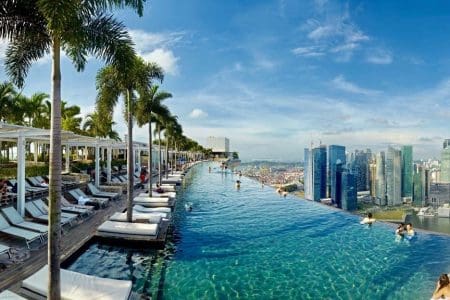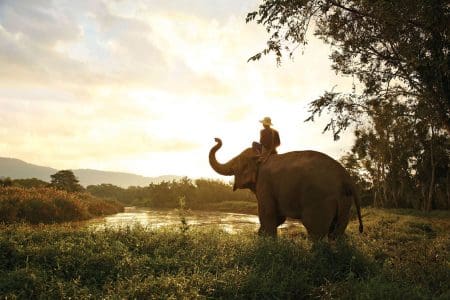Author of seven travel books and founder of the Kiwi Collection, luxury travel guru, Philippe Kjellgren (or PK), is currently travelling around the World in 800 days. He talks to Travel Begins at 40 about his trip and his travel members App PK’s List.
You are currently on an 800-day trip of luxury accommodation around the world, how did you select these places?
Philippe Kjellgren: All are based on my past experience having worked with luxury hotels since 2002 as the founder of Kiwi Collection, I have also kept in the know, as I receive the latest news on openings etc, so the trip was created around where there are amazing places to stay, and areas I knew had just opened or are becoming increasingly popular with luxury travellers.
Why did you decide to embark on this trip?
Philippe Kjellgren: I decided to create a Hotel App showcasing all the best hotels, and to show the difference from any other hotel App, I decided to visit all the hotels in the App to show they’ve been individually selected, based on the fact that I had been there. Many hotels I had been to previously, but the only way to prove it was to go back and take a picture. It’s also the only App in the world allowing subscribers to interact directly with each hotel.
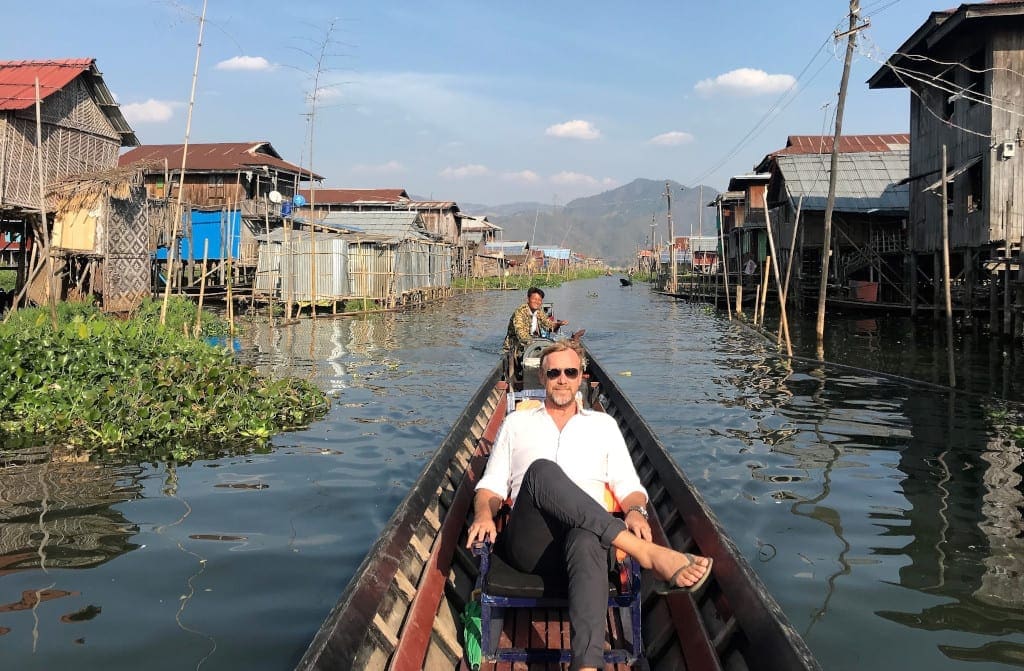
What have you learned from your trip?
Philippe Kjellgren: That the world is much larger than I thought, some countries are very hard to get around such as Brazil. There are still many untouched areas, and huge opportunities for the expansion of luxury hospitality. There are many passionate hotel owners that create amazing places and help communities to make this place a better world.
How would you define luxury tourism?
Philippe Kjellgren: Low impact, unique hard to reach destinations, bespoke, privacy and space.
Is it just something for an entitled elite that has little benefit for the host community?
Philippe Kjellgren: I disagree. I think luxury tourism contributes more to the host community through programmes and awareness than say backpackers who are spending a minimum amount and provide nothing to the community. I’ve seen all over the world that communities are better off with low impact luxury tourism, and the community gets something back through the charities that many luxury hotels set up, such as NIHI.com and the Chi Foundation.
How accessible is luxury tourism to all, including those who have special physical and mental needs?
Philippe Kjellgren: Luxury tourism is accessible, specifically those luxury hotels/resorts which focus on physical and mental wellbeing, in particular medispas, rehabilitation centres and health retreats.
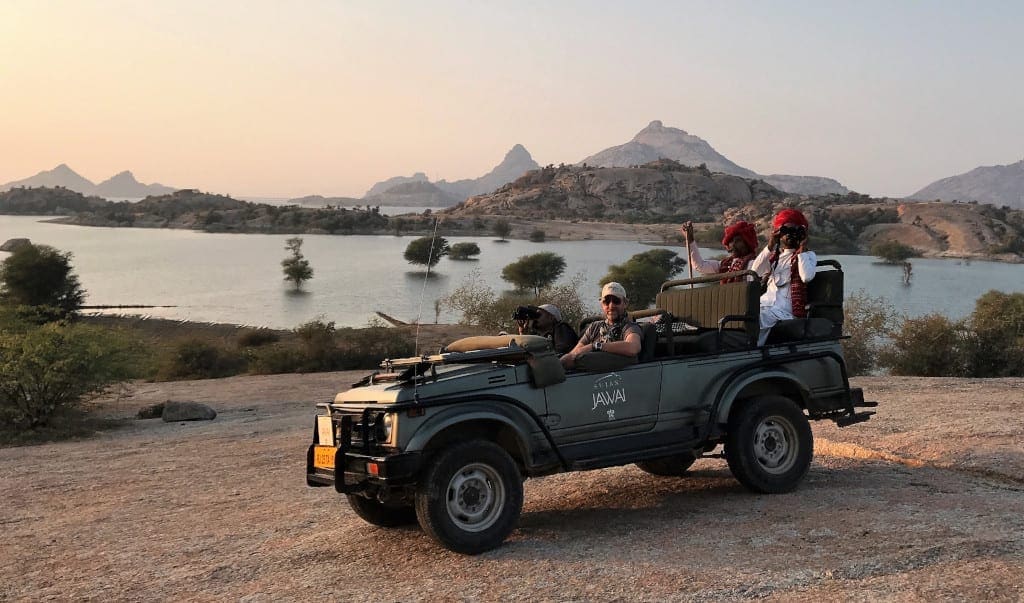
How do you see luxury tourism evolving?
Philippe Kjellgren: I believe it will become more and more bespoke, further removed from other hotels and resorts, hard to reach for the general crowd, or too expensive to reach; luxury tourism is widening the horizon of what to see and explore. To access some destinations on this journey we had to take two flights, drive for many hours and then even take a boat. If money were no object I would just charter a helicopter or a plane to get there.
What are your top criteria when determining the best hotels?
Philippe Kjellgren: Attention to detail is always number one; everything from the small things to interior design, where you can see there has been some thought put into it. Service is key; it doesn’t have to be perfect but it has to be friendly and genuine – the element of surprise, when hotels create those special moments for a guest that are unexpected. The overall quality of a property, when you can see no corners have been cut with materials that last.
How does a truly special hotel distinguish itself from the pack?
Philippe Kjellgren: Through special activities. We just rode on horseback at VIK Estancia in Uruguay. It was sold as a Full Moon Ride, but what we didn’t know was that we started at sunset, rode for 1.5 hours to a spot where a campfire was set up, with a chef and a table with wines and drinks, and chairs facing the river towards the area they had calculated the moon would rise. We then sat and admired a spectacular moon rise, enjoyed incredible BBQ meat and chorizo, sampled great wines and eventually rode back in the moonlight. It was a very unexpected experience that surprised and delighted us. I’ve been all over the world horseback riding, this was the most unique horseback experience I’ve had so far. It’s very easy for other hotels to replicate, but they don’t. Why? That’s what makes a hotel special, these great creative ideas.
What are your top tips for the discerning traveller looking for luxury accommodation?
Philippe Kjellgren: Work with a Travel Advisor – such as PKs List – that has been to the hotels, and has first-hand knowledge. Make sure they know the GM or owner, as they will get a much better experience. So many agencies promote hotels they’ve never been to, and I think first-hand knowledge is key. Travellers should make sure the Advisor knows their taste and has knowledge about their specific needs, as that will help to provide better advice.
What distinguishes your new App from other guides in the market?
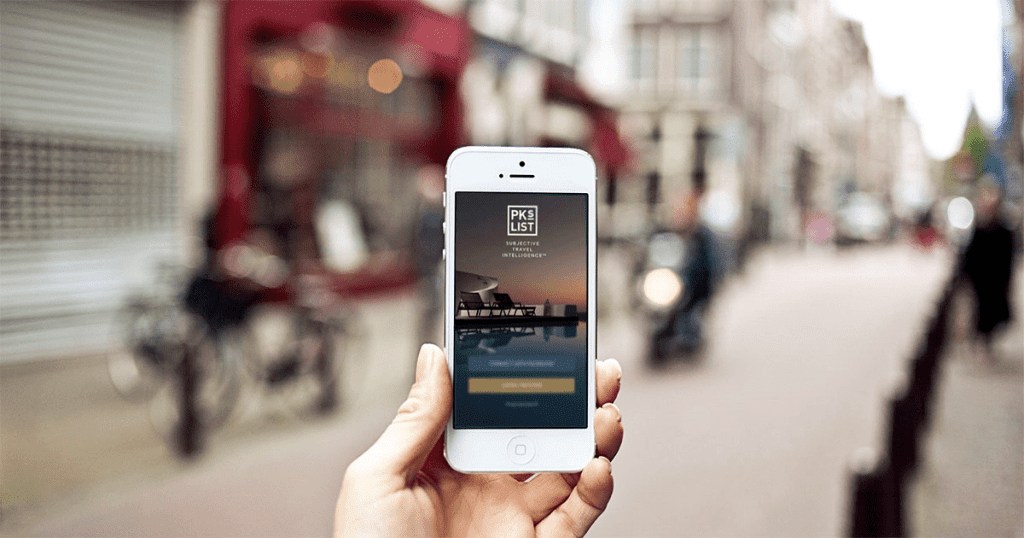
Philippe Kjellgren: Three main things. It’s the only App for luxury hotels where a person has visited all hotels and vetted them, so you have constancy in quality. It’s the only App that allows its users to interact and book directly with each hotel. It’s the most comprehensive collection for luxury or high end hotels ever compiled. It’s not just very expensive places – but they’re all great – divided into three categories $, $$, $$$ based on average nightly rates.
How does it work?
Philippe Kjellgren: You download the App from the App Store and pay an annual, or soon monthly fee, similar to Spotify and as a result you’ll have all my research in your pocket.
There has been a recent movement against over-tourism, how do you feel we can create a sustainable tourism sector?
Philippe Kjellgren: I totally agree there are some areas in the world that have been destroyed by over-tourism, in my opinion the way to see the issue is to do what Thailand recently did and close off areas from tourism to protect them, another way is to do low impact luxury tourism. If you charge 10 times more you will get 10 times less people visiting an area while still retaining the revenue. These type of tourists also contribute more to the community. Another way is to do like in Bhutan, where they impose a daily tourist tax of $200 per person, as a result you get less tourists and focus more on low impact tourism.
After you have completed your travels, what are your next steps?
Philippe Kjellgren: I will never complete my travel but this nonstop #800DaysAroundTheWorld trip will end mid-July, thereafter I will travel like I used to maybe 100-150 days per year. The focus will be promoting the App and grow its content. Currently there are roughly 2,000 hotels visited in person in 142 countries. By the end of this trip, I will have stayed in well over 500 of them, and many of the others I’ve stayed in the past.
Finally, out of all the countries you have visited on the trip, which is your favourite, and why?
Philippe Kjellgren: I think I would have to say Bhutan, because of its innocence and untouched culture, the incredibly friendly people and the Gross National Happiness which people truly live by. It’s very remote, and I hope will stay untouched as it is for many generations to see.
